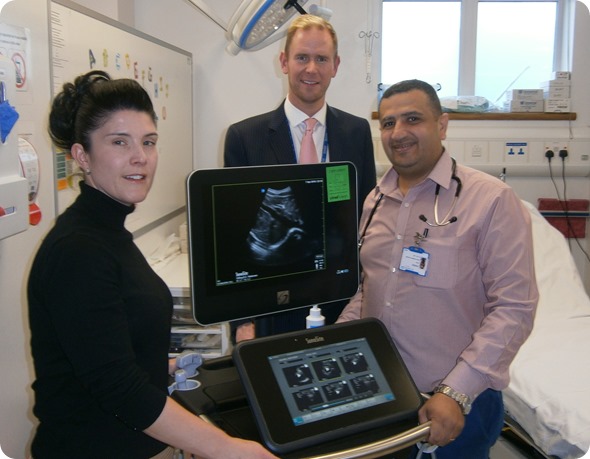The Emergency Department at King's College Hospital NHS Foundation Trust is a busy trauma centre dealing with over 400 cases every day. Point-of-care ultrasound has been used in the department of over 10 years, and now forms an integral part of many patient assessment pathways.

Emergency Medicine Consultant Dr George Nada explained: “We currently use ultrasound for four main activities: FAST scans, insertion of peripheral lines, AAA screens and basic echocardiography, but it also has applications in many other areas, such as guiding the placement of chest drains, ascetic taps and femoral nerve blocks.”
“We first started using ultrasound in late 2004, just for FAST scans and, approximately 18 months later, for pneumothoraces too. Around the same time, our ICU began using it for central line placement, and we soon followed suit for peripheral lines. We have used point-of-care ultrasound systems for almost all of this time, and the improvements – particularly in image quality – have been very impressive."
"Our latest system has the added advantage of a large screen which makes it very easy to see the structures of interest during a procedure. Its built-in learning modules are also excellent; new registrars coming into the department can simply work through the tutorials, and don’t need any specific training on how to use the instrument.”